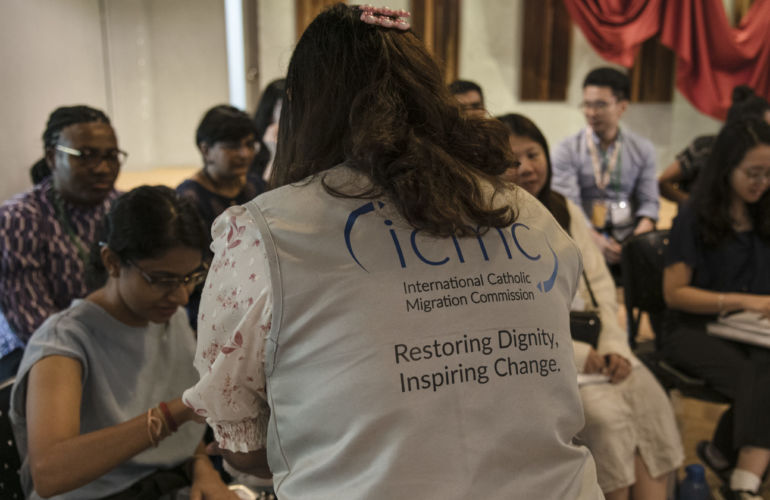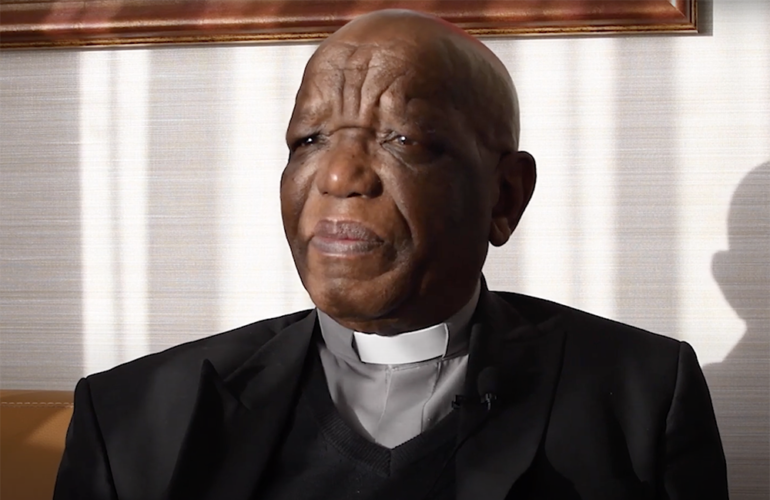ICMC’s Member in Korea Ensures Access to Healthcare for Undocumented Migrant Children
The Catholic Bishops’ Conference of Korea has launched a new national project in response to the challenges faced by undocumented migrant families to access health and medical care for their children.

Read this article in Spanish / Lea este artículo en español
Until the late 1980s, the Republic of Korea (South Korea) was a country of emigration, with large numbers of Korean citizens departing the country as labor migrants, in destinations including Germany, the Middle East, and the U.S. Over the past three decades this pattern has shifted, and Korea has become a net migrant receiving country.
This shift in the migration landscape has brought significant changes and challenges for Korean society. For the Catholic Bishops’ Conference of Korea (CBCK), ICMC’s national member in the Republic of Korea, it has meant a reorientation of pastoral support in relation to migrants.
“Our Migration Pastoral Committee was initially founded in 1971, to provide pastoral support to Koreans migrating abroad or working in other countries,” explains Father Miguel Seongho Hwang, Secretary General of CBCK’s Committee for the Pastoral Care of Migrants and Foreign Residents Living in Korea. “With the increasing number of people migrating to Korea since the early 2000s, however, our pastoral care has shifted to focus on migrants residing here. Our work is guided by the four action verbs so clearly elucidated by Pope Francis: ‘Welcome, Protect, Promote, and Integrate’.”
The Committee for the Pastoral Care of Migrants and Foreign Residents Living in Korea coordinates CBCK’s work at national level. Led by Committee Chairman Archbishop Peter Chung Soon-taick, it is composed of Secretary General Fr. Miguel Seongho Hwang, priests designated as responsible for migrant pastoral care in the fifteen dioceses of Korea, and representatives of male and female religious congregations.
“Early 2003 was really a key point of transition in how we organize this work, when Bishop Kang Woo-il Pedro took office as chairman of the Migration Pastoral Committee and organized the first national meeting of priests designated for migration pastoral care in each diocese,” Fr. Seongho Hwang recalls. “Since then, we have progressively strengthened staff training and diocesan solidarity via four annual meetings, and two national training workshops and retreats held each year.”
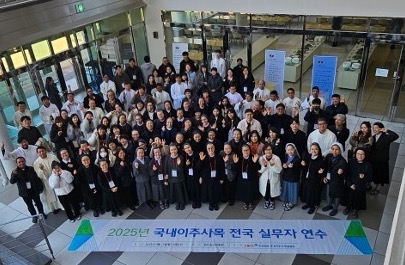
“We can no longer reject immigrants”: Migration and migrants in a ‘super-aged’ society
Approximately 2.65 million migrants are registered as living in Korea, making up just over 5% of the country’s total population. The migrant population is steadily increasing year-on-year, growing from 1.45 million persons in 2012, to 2.52 million in 2019, and rebounding to current levels from a short period of decline caused by the global COVID-19 pandemic.
“We see that the majority of migrants are coming from East Asia, including both labor migrants and a growing number of international students coming to study at Korean universities, especially from Vietnam,” says Fr. Seongho Hwang. “There is also a smaller, but steady, stream of immigrants who are marrying Korean nationals and moving here to join their spouses.”
While immigration may be a relatively new phenomena for Korea, migrant labor is now a crucially important resource for the economy of a society that is now classified as ‘super-aged’. “Twenty per cent of the Korean population is aged 65 years or more, and the birth rate is the world’s lowest,” explains Fr. Seongho Hwang. “Korea therefore finds itself in a situation where it cannot reject immigrants. Migrant workers need work, but we also need migrant labor: we need each other.”
Despite the central role of migrant labor in maintaining the Korean economy, national policies and programs governing migrant labor have not yet caught up with this new reality.
No single government department or ministry is responsible for tracking the number of migrant workers with employment visas, instead reporting on specific industries within their mandate in which migrant workers are predominantly employed (mining and manufacturing, service industries, food production, construction, and agriculture). Migrant workers additionally face discrimination, restricted entitlements to mainstream services and assistance, and challenges in accessing employment rights and protections.
Undocumented Migrants in Korea
An estimated 18 per cent of migrant workers in Korea are thought to be undocumented, a substantial increase from the 2012 estimate of just over 12 per cent, that illustrates the growing nature of this phenomena.
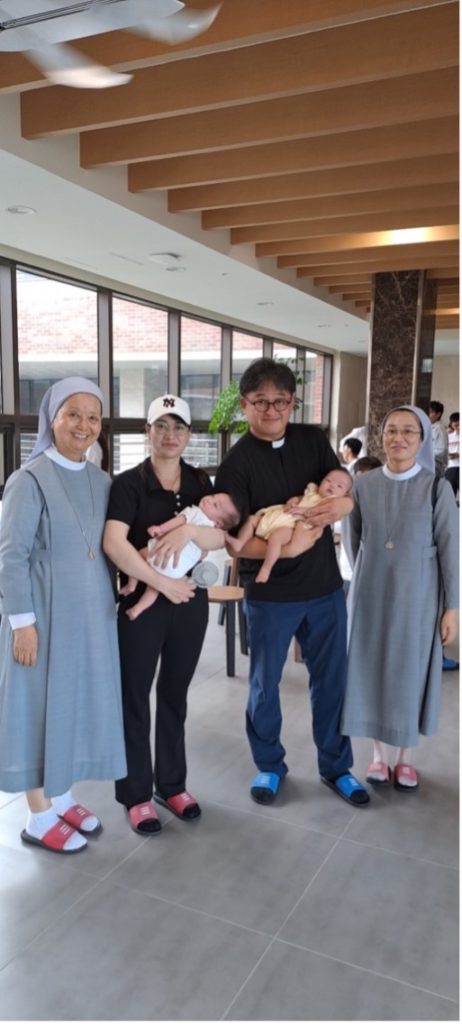
A root cause is the national employment permit system, which prevents migrant workers from changing their workplace without employer permission for a period of at least three years. Unauthorized job changes lead to visa cancellations, propelling workers into undocumented status and increasing their vulnerability to exploitation.
“Becoming undocumented is undoubtedly both caused and exacerbated by the employment visa system,” explains Fr. Seongho Hwang. “But this issue also affects migrant women who have moved here to join Korean spouses and subsequently divorced, which in turn impacts both their legal status and that of their children. Marrying and having children abroad is not an easy task, and divorce is a key contributor to becoming undocumented. In addition, babies born to undocumented parents are unregistered and de facto stateless, with severe impacts for their access to basic rights and protections.”
National policy responses have focused on enforcement, such as a 77-day government ‘crackdown’ on ‘illegal aliens’, implemented from April 15 to June 30, 2024, by five government ministries, including the Ministry of Justice. Heavily criticized by migrants rights organizations as disproportionately impacting vulnerable communities, these approaches have been largely ineffective in their stated goal of reducing the number of undocumented migrants in Korea.
“Being undocumented leaves migrants at significant risk of threats to their health and rights, including wage theft, long working hours, lack of fair compensation, and precarious and dangerous working environments”, says Fr. Seongho Hwang. “We’ve seen many cases of injuries in the workplace, and some reported instances of loss of life. Korea is in dire need of developing policies and programs that respond to the current situation to effectively target and protect migrants residing in this country, in particular migrant workers.”
“In some cases, there is no hope at all”: Access to healthcare for undocumented migrant families in Korea
A key area of concern for undocumented migrants is access to healthcare. Migrants without a secure legal residence are ineligible for the national health insurance system, and must instead rely on healthcare provided on an ad-hoc, voluntary basis, by individual clinics and civil society organizations. The availability of this assistance varies greatly across the country, with undocumented migrants in some locations left with few or no options to address their medical needs.
“The healthcare impacts are particularly acute for the children of undocumented migrants, who cannot access basic childhood medical necessities such as vaccinations, or any other type of medical care that children so often need,” says Fr. Seongho Hwang. “In cases of serious illness, rare diseases, premature births and other prenatal complications, the high costs of hospital treatment can completely destabilize the lives of these families. If a baby becomes seriously ill, there may be no hope at all.”
National policymakers are beginning to pay attention to this critical issue, seen in a recent bipartisan legislative proposal that would, if passed, require medical institutions to register babies born to undocumented parents. It would also prohibit government officials involved in birth registration from reporting undocumented residents to immigration authorities.
“We clearly need a comprehensive and systematic national approach to caring for undocumented migrant families, including specific measures to care for their children,” says Fr. Seongho Hwang. “This proposal is a welcome first step in ensuring some measure of protection for undocumented families, and we very much hope it will pass into law.”
Church action to protect the lives of undocumented children: The Wings of Hope project
CBCK’s Committee for the Pastoral Care of Migrants and Foreign Residents is responding directly to the current reality of access to healthcare for the children of undocumented migrants in Korea.
“When undocumented families find themselves in critical situations with regard to their children’s health, they often come to us for help,” explains Fr. Seongho Hwang. “So we were already assisting this population across the country, as far as we were able, by providing support for medical expenses and establishing treatment plans so they can lead a full life. But although the dioceses were working really hard, the enormous hospital costs to treat all those in need remained a difficult reality for everyone.”
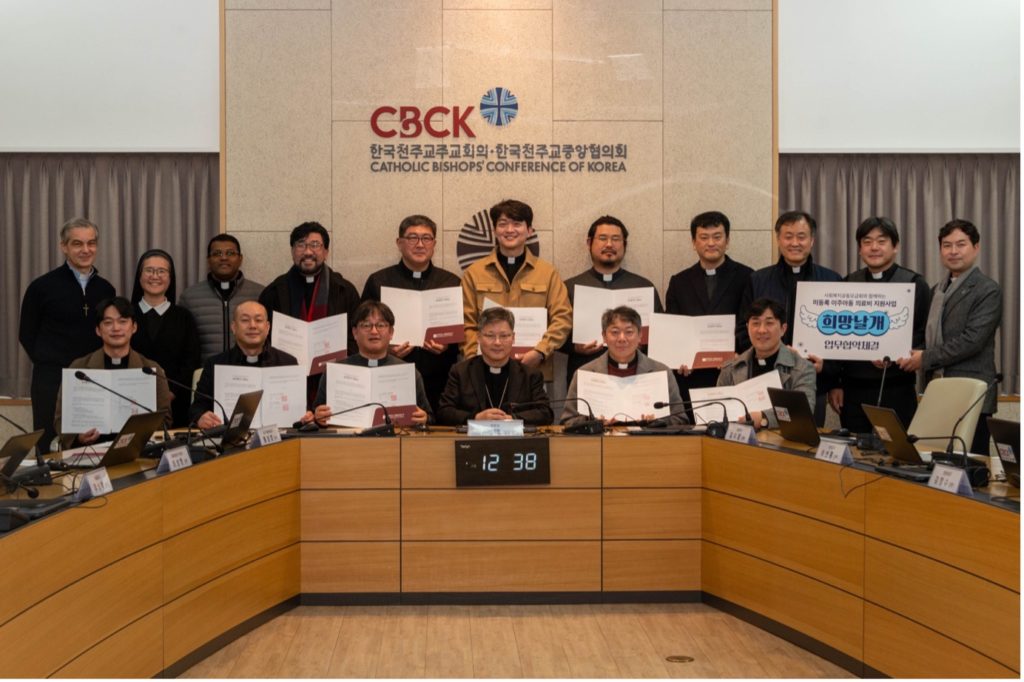
This was the situation in mid-2024, when the CBCK Committee was contacted by the legal institution Community Chest of Korea. “They were looking for a suitable organization, with a nationwide network and already providing assistance to families in this situation, to implement a national project to assist undocumented immigrant children with healthcare and medical support,” recalls Fr. Seongho Hwang.
It was from this initial contact that the Medical Expense Support Project for the Healthy Growth and Development of Undocumented Migrant Children, also known as the Wings of Hope project, was born. The project is implemented by the CBCK Committee for the Pastoral Care of Migrants and Foreign Residents Living in Korea, in collaboration with project lead the Migrant Pastoral Committee of the Archdiocese of Seoul and fifteen dioceses nationwide. With an initial implementation period of February to December 2025, extendable until 2027, the project targets undocumented immigrant children aged 0-6 years throughout the country.
“Wings of Hope will provide each child in need with up to 5 million won (USD 3,492) for the treatment of critical medical conditions, up to up to 1 million won (USD 685) for minor medical expenses, and up to 300,000 won (USD 205) for mandatory vaccinations,” explains Fr. Seongho Hwang. “It will additionally allocate up to 3 million won (USD 2,095) to undocumented expectant mothers, to cover hospital pregnancy and childbirth expenses.”
Migrant families can apply for support from the project through participating dioceses’ migrant committees, and receive the benefits directly once their application is accepted and approved. The project’s operating costs are provided via a grant from the Ministry of Health and Welfare of the Korean government, which has allocated 3 billion won (USD 2.04 million) to the initiative for the next three years.
“Our objective in implementing Wings of Hope is to protect the lives of undocumented children, who are in a ‘blind spot’ of welfare, and highly vulnerable to social and physical violence and exploitation,” says Fr. Seongho Hwang. “One of the most important tenets of the Church is the protection of life, and it is this core commitment and value of our faith that drives us to walk alongside undocumented migrants, as the most vulnerable amongst us.”

Rachel Westerby
Independent writer and researcher on migration and refugees.

